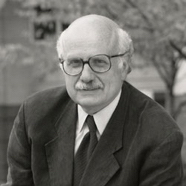The Trump J6 Case Is Back
 The January 6 criminal case brought against former President Donald Trump by Special Counsel Jack Smith is back in federal district court with Judge Tanya Chutkan.
The January 6 criminal case brought against former President Donald Trump by Special Counsel Jack Smith is back in federal district court with Judge Tanya Chutkan.
Some thought the case was over when the Supreme Court ruled last month that a former President cannot be prosecuted for actions relating to the core powers of their office, and that, more broadly, there is at least a presumption of immunity for their official acts.
But this case is by no means over.
The Supreme Court decision called on Judge Chutkan to determine which of the allegations in the 45-page Trump indictment involved official actions and which involved unofficial acts that can be pursued in a trial. This left room for bringing criminal cases against former Presidents for unofficial acts – acts unrelated to the duties of a President.
The Supreme Court sent the case back to the D.C. Court of Appeals which immediately sent it back to Judge Chutkan to proceed with the Court’s mandate.
As a result, Judge Chutkan has scheduled a hearing for August 16 to discuss with the parties how each wants to proceed with the fact-finding mission ordered by the Supreme Court.
Judge Chutkan also rejected a motion from Trump to dismiss the indictment but said the Trump legal team could refile the motion after the immunity issues are resolved.
Some observers have argued that this review process should be an opportunity for a mini-trial in which witnesses are heard in order to determine which parts of the indictment can go forward. Judge Chutkan, however, is not expected to explain how she will proceed until after the August 16 hearing.
Democracy 21 issued a report last year on the key facts in the Trump January 6 indictment.
An analysis in Just Security this week examined which allegations in the Trump indictment could remain as the basis for a trial under the Supreme Court’s new immunity standard.
The authors concluded that the case “albeit narrowed — is still plainly viable as a criminal prosecution. […] We believe that a sufficient core of criminal conduct remains subject to prosecution.”
According to the analysis, “[T]he alternate electors scheme alone should be sufficient to sustain the criminal charges. That scheme involved the submission of fraudulent papers as part of a conspiracy to thwart the proper functioning of the electoral count so Trump could unlawfully remain in power.”
In addition to resolving which allegations in the indictment remain as the basis for a trial, Judge Chutkan is expected to proceed with pre-trial proceedings which she had originally estimated would take some three months. This could set the stage for a possible criminal trial of Trump after the election.
But this trial could have been well over by now, if the Supreme Court had treated the case as the important case it was and expedited the proceedings as it has in similar important cases.
Instead, they slow-walked the case, beginning in December when they refused to expedite the case following a request from Special Counsel Smith. When the case finally got to the Supreme Court in February, they refused to act quickly, instead waiting until the last day of oral arguments to hear the case and the last day of the term to issue their opinion.
By treating it as just another case, the Supreme Court ensured that no trial of Trump would take place before the election.
And, when the Roberts Court, in a 6-3 decision, finally did issue an opinion, the decision was anti-American, anti-democratic, and one of the worst decisions ever rendered by the Court.
The Supreme Court’s decision overrode a foundational principle of our country that no person is above the law, ruling instead that, in essence, Presidents are above the law.
Former President Trump led an unprecedented attempt to overturn the 2020 election. Yet he has not been held accountable for his actions and may well try the same kind of coup again in 2024.
The charges currently facing former President Trump in the January 6 case could not be more serious.
Our justice system and the rule of law require that a trial take place and that a jury of his peers determine if Trump is to be held accountable for his actions.
Fred’s Weekly Note appears on Thursdays in Wertheimer’s Political Report, a Democracy 21 newsletter. Read this week’s and other recent newsletters here. And, subscribe for free here and receive your copy each week via email.